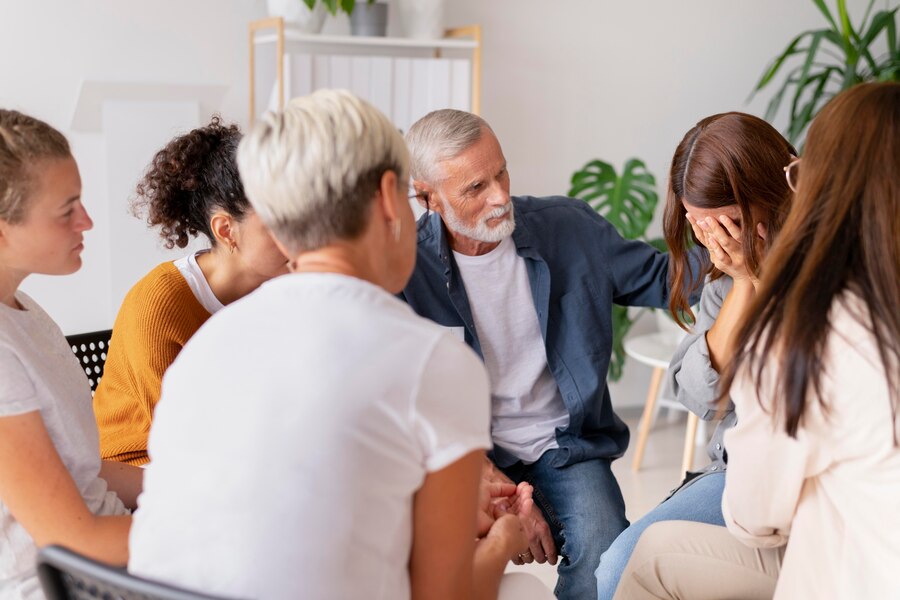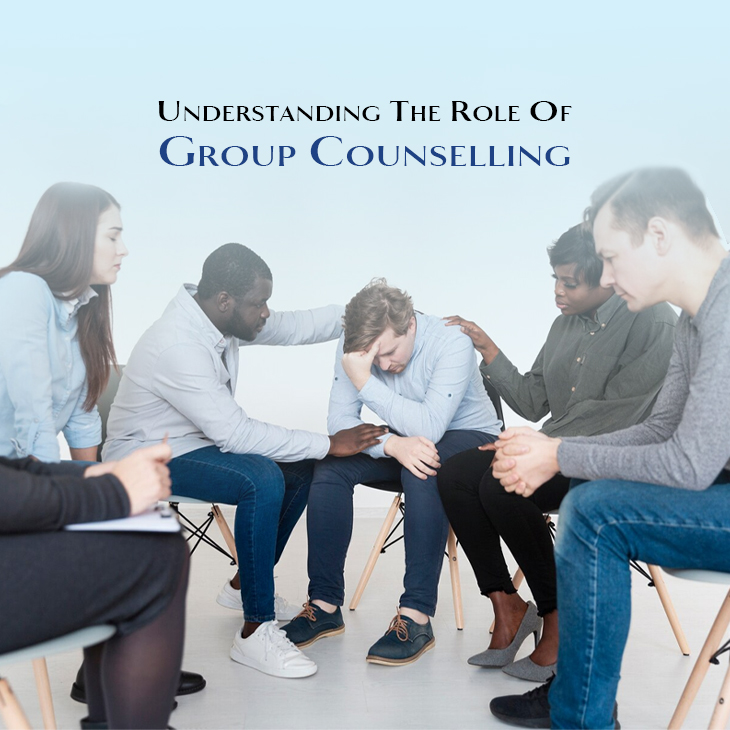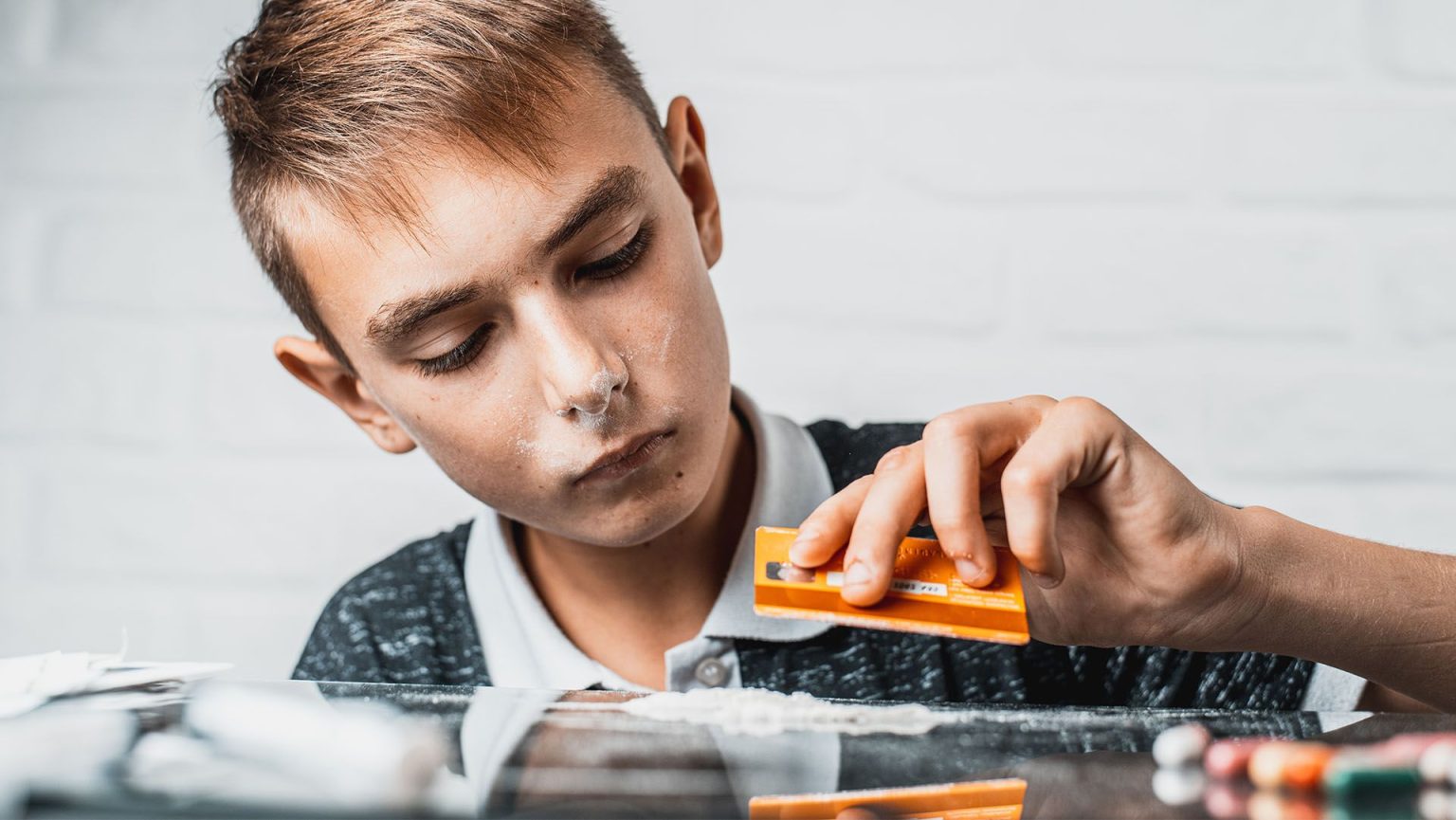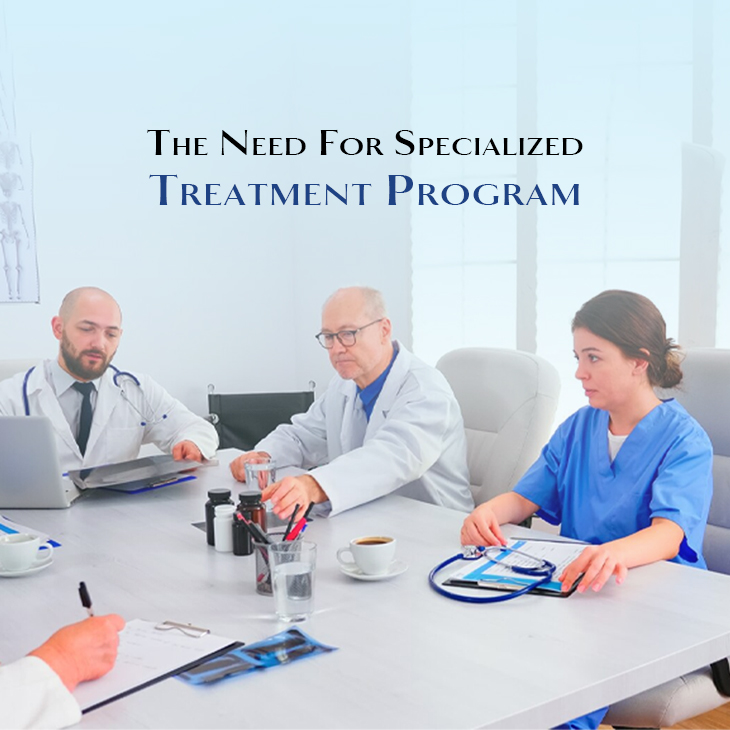Recovery from substance abuse is a challenging journey and the availability of effective resources can make a huge difference. Group counselling is part of these effective resources, it is an empowering tool that can catalyze your path to recovery. In this path of recovery, the importance of a treatment plan for substance abuse cannot be overstated. In this article, we begin by emphasizing the paramount importance of effective substance abuse treatment and introduce the central theme of the article: the role of readily available group counselling in enhancing treatment plans.
Understanding the Role of Group Counselling
What is Group Counselling in Substance Abuse Treatment?
It is like having a support team in the world of substance abuse treatment. Group counselling is where people who are going through a similar journey of recovery from substance abuse, come together to talk and help each other. It is a safe space to share feelings and experiences with people whose sufferings are similar to yours.
How It Works
A trained therapist or counsellor guides the sessions. You and a group of people having similar struggles sit together and discuss experiences, feelings, thoughts and journeys towards recovery.
The Benefits
You’re Not Alone: in group counselling, you meet people who understand what you’re going through, their struggles are similar to yours. The thought that you’re not alone is comforting.
- Sharing is Healing: it feels good to share your thoughts and let it all out, also hearing others share theirs. This can help you process your feelings.
- Learning from Others: Other people’s experiences teach you a lot. You might learn some tips and insights that can help in your journey of recovery.
- Support and Encouragement: it’s like having a team that’s always there to lift you and motivate you when things get tough.
- No Judgement Zone: Everyone is there to help and support you, not to judge or criticize.
- Building Confidence: it helps in boosting your self-confidence. When you share and support others, the strength to overcome challenges builds in you.
Finding Group Counselling Near You
Here’s some guidance on finding local group counselling programs for substance abuse:
Online Searches: Conduct online searches using search engines. Use specific keywords such as “group counselling near me” or “local addiction support groups”, add “near me” to help find nearby options.
Treatment Centers: Addiction treatment centres have information on group counselling programs for substance abuse. Reach out to them.
Contact Local Therapists and Counsellors: Local Therapists and Counsellors can be a great source to finding information about group counselling sessions.
Support Groups: Support groups in your community might not provide professional counselling but they provide valuable peer support.
Helplines and Hotlines: Substance abuse helplines can provide information too.
Insurance Providers: Check with your health insurance provider for a list of in-network treatment facilities.
Focusing on these methods will help you gain access to local group counselling programs for substance abuse treatment that are accessible to your location.
The Long-Term Impact of Group Counselling

For a long-term impact counselling and support groups play a crucial role in preventing relapse and sustain recovery.
Continued Guidance and Support: Individuals in recovery can have consistent guidance and emotional support.
Skill Development: Counselling sessions teach valuable coping skills and strategies to manage conditions.
Accountability: Individuals are likely to stay more committed to recovery if they report their progress to others.
Emotional Expression: It is a safe space to let out all emotions and thoughts.
Identifying Triggers: Creates awareness in identifying the triggers that may lead to substance abuse.
Customized Support: Specific needs of each individual can be addressed through ongoing treatment.
Role of Community Organizations, Support Groups and Online Resources in the Search
Community Organizations
You can find local mental health centers that offer substance abuse counselling services. Various non-profit organizations also provide resources. Then there are religious institutions that host support groups and provide local resources for substance abuse counselling.
Support Groups
Programs like the 12-Step programs and SMART recovery help emphasize peer support and focus on self-empowerment.
Online Resources
SAMHSA’s Treatment Locator provides an online directory to locate treatment facilities. Local Health Department websites can provide valuable information too. You can also find virtual support groups, if you have limited access to in-person treatment plan for substance abuse.
Strategies for Relapse Prevention
1. Recognize What Makes You Want to Use:
Think about the people, places, or situations that make you want to use substances. These are your triggers. Once you know what they are, you can come up with ways to avoid them or handle them better.
2. Find Better Ways to Cope:
Instead of using substances to deal with stress, anxiety, or bad feelings, learn healthy ways to cope. Things like taking slow, deep breaths, practicing mindfulness (which means staying in the moment), or trying meditation can help.
3. Take Care of Your Body and Mind:
Make sure you’re treating your body right. Regular exercise, eating good food, and getting enough sleep keep your body and mind strong. When you’re healthy, it’s easier to resist the urge to use substances.
4. Surround Yourself with Support:
Build a strong team of people who have your back. Friends, family, counsellors, and support group members understand what you’re going through. They can be there to help when you need it.
5. Keep Your Days Structured:
Having a daily routine with things to do and goals to achieve can keep you from getting bored or feeling lost. Structure gives you a sense of purpose and helps you stay on track.
6. Have a Plan to Stay on Course:
Work with a counsellor to create a plan to avoid relapsing. This plan should spell out the signs that you might be in trouble, how to handle tough moments, and who to reach out to if you’re at risk of relapse.
Conclusion
In simpler terms, know what tempts you to use substances, find healthy ways to deal with stress and bad feelings, keep your body and mind in good shape, have a support team, stick to a daily routine, and have a plan to stay on the right path. It’s like having a map to stay away from old habits and live a better, healthier life. Search for “group counselling near me” to get more help and information on the treatment for substance abuse. The journey to recovery can be hard but by seeking group counselling this journey can become easy. The hope that you’re not the only one suffering is a step towards motivation and support.













